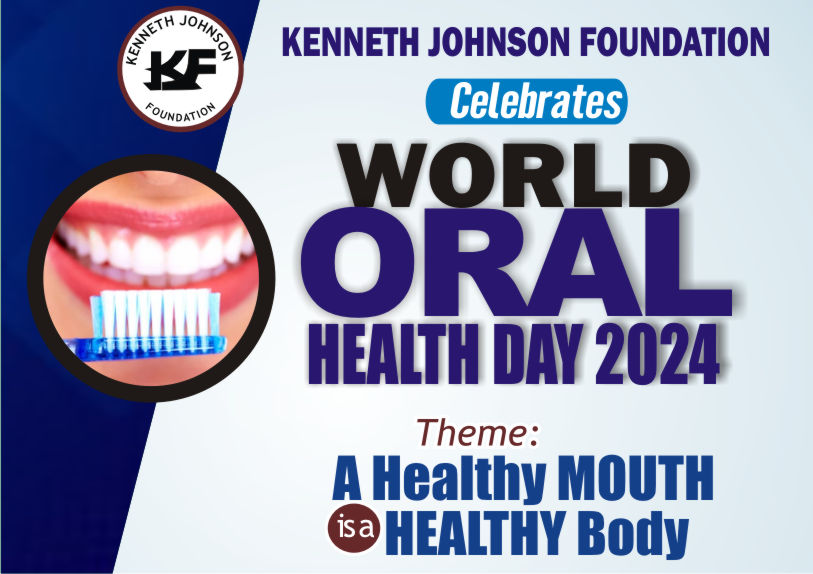Will storm Rivers primary schools for an
Oral Health Awareness
campaign and distribution of Toothbrushes and paste to commensurate with THE WORLD ORAL HEALTH DAY...
More Details

Oral health is multi-faceted and includes the ability to speak, smile, smell, taste, touch, chew, swallow and convey a range of emotions through facial expressions with confidence and without pain, discomfort and disease of the craniofacial complex (head, face, and oral cavity).
Oral health means the health of the mouth. No matter what your age, oral health is vital to general health and well-being.
Good oral and dental hygiene can help prevent bad breath, tooth decay and gum disease—and can help you keep your teeth as you get older. Establishing good oral hygiene and dietary habits has been proven to be essential to achieving and maintaining overall physical and emotional well-being throughout life.
The two main functions of the mouth are eating and speaking. The face's trigeminal nerve provides sensation (feeling) and helps us to bite, chew and swallow. Some disorders of the mouth include infections, ulcers, cancer, cleft palate, dry mouth syndrome, dental caries and speech problems such as lisping.
Oral health is important, even with baby teeth. This is because children’s baby teeth:
1. Help them to bite and chew
2. Support speech and language development
3. Help them feel confident when they smile
4. Make space for and help to guide adult teeth
Good oral health also keeps children free from toothache, infection and swollen gums.
TOOTH DECAY
Children need to form good oral health habits from an early age to help avoid tooth decay. Tooth decay happens when sugars from food and drinks interact with bacteria in tooth plaque. This results in acid production, causing holes in teeth known as cavities.
If children have tooth decay, they may have yellow, brown or black marks on their teeth. They may also complain about their teeth hurting, particularly when eating or drinking.
BRUSHING TEETH
As soon as a child’s teeth start to come through, they are ready for tooth brushing to start.
For effective tooth brushing:
Use a fluoride toothpaste that contains at least 1000 parts per million (ppm) of fluoride you can find this information on the packaging
Use a smear of toothpaste for children under 3 and a pea-sized amount for those aged 3 to 6
Brush in circles for around 2 minutes, making sure to cover the whole of each tooth
Brush twice a day, including once just before bed - this allows the fluoride to keep working while children sleep
Children should spit, not rinse, after brushing - this avoids washing away the fluoride
Adults should help children to brush their teeth until they are 7 years old to make sure they are brushing properly
HOW TO PROMOTE GOOD ORAL HEALTH IN YOUR SETTING
You can decide how you promote oral health based on what works best in your setting. Ideally, you should link oral health to other key topics, like self-care, healthy eating, and physical development.
Being playful with children can help to promote good oral health. There are several activities you can use to teach them about tooth brushing and care.
DENTIST ROLE PLAY
Try setting up a dentist role-play in your setting. This familiarises children with the dentist’s environment, equipment and processes.
Here are pictures from our last event, where we visited some primary schools in Rivers State with toothpaste and toothbrushes to join the world in celebrating World Oral Health Day 2024.
We also educated them and shared with them the importance of Oral Health.
HTML Code Generator
campaign and distribution of Toothbrushes and paste to commensurate with THE WORLD ORAL HEALTH DAY...
More Details
FACEBOOK COMMENTS